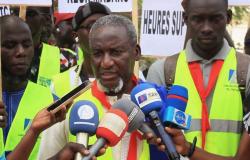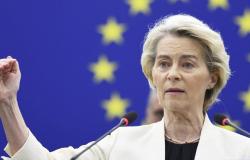(Agency Ecofin) – As part of its efforts to relaunch the efficiency of its refineries, Nigeria, through the NNPC LTD, recently dismissed the Directors general of Port Harcourt, Kaduna and Warri from their functions.
The Economic and Financial Crimes Commission (EFCC) has launched an investigation into the use of public funds engaged in the rehabilitation of public refineries. The information was relayed on Saturday May 3 by the local press.
It intervenes in a climate of distrust nourished by the repeated delays in the work, the upward revision of costs and a lack of clarity in the execution of contracts. Since 2020, nearly $ 3 billion has been engaged in this industrial project.
Although some of these refineries have been partially put back in service, they still struggle to operate at full capacity. A situation that slows down the government’s hopes to reduce its dependence on fuel imports.
The current investigations aim to establish possible responsibilities in the management of the resources mobilized. If no senior official has been formally charged at this stage, several former leaders in the petroleum sector are suspected of financial embezzlement.
This is particularly the case of Mele Kyari, the former director general of the Nigerian National Petroleum Company Limited (NNPC LTD) group, dismissed last month after the dissolution of the management and the board of directors of the public enterprise. Speaking on the subject, the ex-responsible firmly denied rumors of his arrest in the context of EFCC’s investigations, while reaffirming his availability to respond to any legal procedure.
In addition to Mele Kyari, the anti -corruption survey opened by the EFCC also concerns the former general directors of the Harcourt Company Limited Port (PHRC), Ibrahim Onoja, the Kaduna Refining and Petrochemical Company (KRPC), Mustafa Sugungun. All three were dismissed on the occasion of the recent reshuffle operated within the public company.
-This development is involved in a context of strong pressure on the government, while Nigeria, the leading producer of Africa crude, continues to import most of its refined products. A structural paradox which weighs heavily on the country’s trade balance.
Note that this affair, the outcome of which remains uncertain at this stage, is not an isolated case. The file revives the memory of the corruption scandal involving the former oil minister, Diezani Alison-Madueke, accused of massive embezzlement of funds between 2010 and 2015.
What strengthen calls for structural reform of petroleum industry governance in Nigeria, which represented between 5 and 7 % of GDP and 90 % of the country’s export income in 2023, according to the Statita data site.
Abdel-Latif Boureima
Edited by Wilfried Assogba
Read also:
05/01/2025 – Nigeria: the NNPC LTD readjusts its governance to revive the efficiency of refineries








